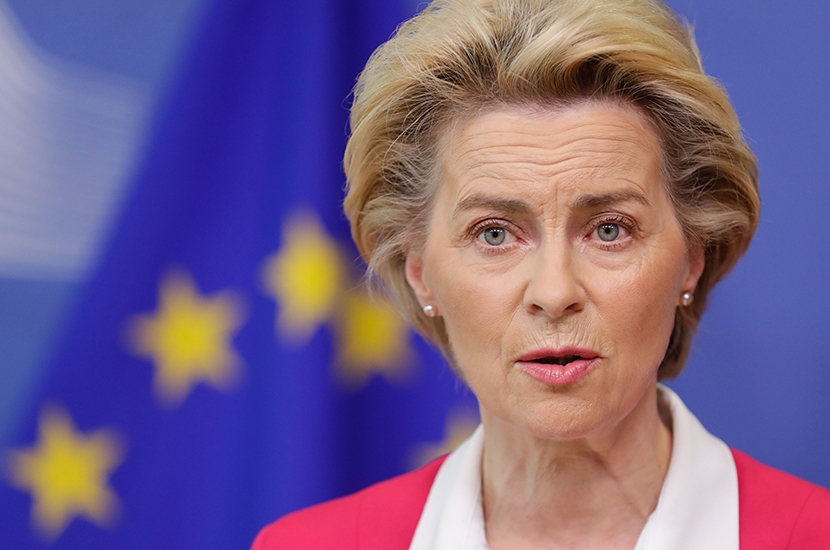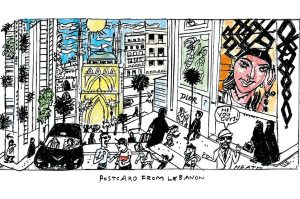You may have missed Ursula von der Leyen’s big speech at Davos last week. Most people did. Perhaps because Davos was a more low-key affair than normal this year.
Ordinarily the annual summit of the World Economic Forum allows various world leaders to jet into the Swiss Alps in order to lecture the rest of us on the virtues of zero carbon. But this year the head of the Forum — Klaus Schwab — greeted his guests virtually and alone. Welcoming the president of the European Commission down the line, the two reminisced about last year’s summit and such pleasures as being lectured by Greta Thunberg.
Although they tried to pretend that last year’s meeting in some way foresaw the era we are now in, of course it did no such thing. It never does. For while Davos man (and woman) imagine themselves staring steely-gazed into our long-term future, the short-term future keeps on happening. And that rarely if ever includes anything that Davos man warned about — which is quite the accomplishment, given that an average Davos insight is to say that the challenges we face in the years ahead are global and must therefore have global solutions. Davos is packed with insights hardly worth the bus fare, let alone the private jet fare.
In any case, the Davos desire to retrofit such blandishments into our current reality was nowhere so evident as in von der Leyen’s remarks about Big Tech. In her ‘Special Address’, the president of the EC said that Davos had warned about ‘the business models of Big Tech companies and the consequences for our democracy’. This year, believing that such extraordinary foresight had been vindicated, she said that the storming of the US Capitol last month was an example of ‘the darker sides of the digital world’. Inevitably she called on the new US President to join the EU in drawing up ‘a common rule book’ for the tech companies.
Though it pains me to say it, von der Leyen is on to something. Big Tech is one of the menaces of the age, with a power that exceeds anything in the history of information. It not only has the power to decide what we can hear, say and know but the ability to decide what the past, as well as the present and future, looks like. The most benevolent reading is that it wields a power that is beyond any individual company’s competency. A less benevolent reading is that it allows a small number of malign Silicon Valley lefties the power to impose their world view over every non-totalitarian-ruled population on the planet.
Of course, we now know that it should never have got to this. If the Big Tech companies like Google, Amazon and Facebook were companies in the 1980s, then they would have been hauled in front of a monopolies and mergers commission, investigated and broken up. But that didn’t happen. Instead the companies ate up all their competition, ran to tax havens and boasted about the ‘charitable contributions’ they made to various left-wing causes in lieu of doing anything as mundane as paying taxes.
So when I hear anyone professing a desire to take on Big Tech I feel a surge of solidarity. Even when the solidarity must be with Ursula von der Leyen. And yet the problem is obvious and von der Leyen exemplifies it. For if there were a competition to find an entity less trustworthy than Big Tech to decide what all the world’s citizens can say, know and hear, then the European Commission and von der Leyen would surely be a shoe-in.
For instance, when she says that we must ‘defend our institutions against the corrosive power of hate speech’, ‘disinformation’ and ‘fake news’, what is she thinking of?
Would it include supra-national institutions ordering raids on laboratories, breaking contract law and rupturing borders whose integrity they have spent years professing to care about? Would it ever include a speech by a panjandrum of the EU? Could it ever include anything from Emmanuel Macron? One suspects not, for while social media companies have recently seen fit to censor the now former president of the United States, the present Israeli prime minister and endless conservative media outlets (including America’s oldest newspaper), the name of the French president, like the European Commission, appears to be listed on some other, more benevolent, side of the ledger.
So when President Macron speculates — as he did last week — about the efficacy of a COVID vaccine produced in the UK, he does not see his social media accounts taken away from him. He does not see himself unverified or subjected to endless ‘fact-checking’. Like the Supreme Leader of Iran, the Communist party of China and sundry terrorist groups, the French president is able to merrily tweet away despite pumping out vaccine skepticism in a country that does not need an injection of the same.
A reminder — if we needed it — that the only thing messier than a barely regulated internet is one regulated by the people who would like to regulate it. Von der Leyen and others believe that they have the answers on tech regulation because they believe that they have the answers on most things. But if they were so good either at forecasting problems or dealing with current ones, the EC would not have created the mess that it has. Anybody who likes how von der Leyen has organized the EU vaccine procurement program is going to love how she tries to organize everything they are allowed to know and say.
All discussion over internet regulation is subject to nothing so much as a thousand examples of the Russell Conjugation. That is the tendency to inflect your judgment of a statement depending on the person making it. So, for instance, while I am exercising free speech, you may be demonstrating problematic speech and someone we dislike is practicing hate speech. It is a version of the fact that while you are always entertaining at dinner, another person is garrulous and a third is a drunken bore.
So it is with fake news, disinformation, hate speech and all the rest of the things von der Leyen and Davos man worry about. People like them never spread disinformation or fake news, just as they never break the law. Only other people do that. Which is why it is always other people who must be stopped.
This article was originally published in The Spectator’s UK magazine. Subscribe to the US edition here.


















